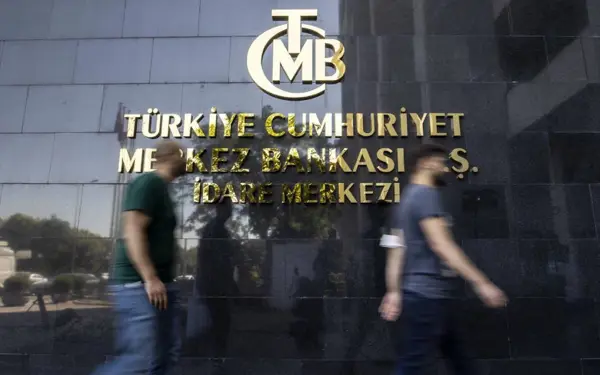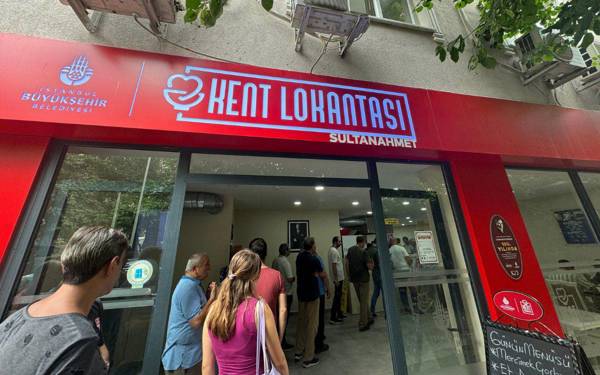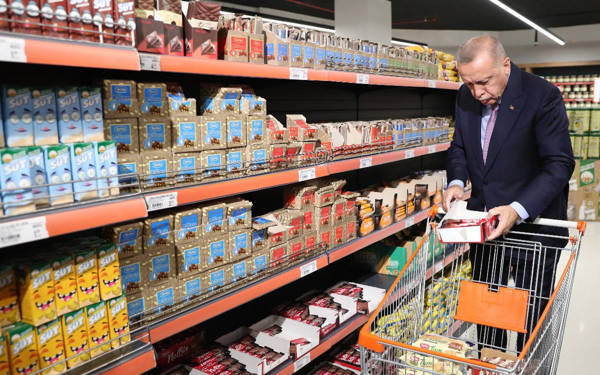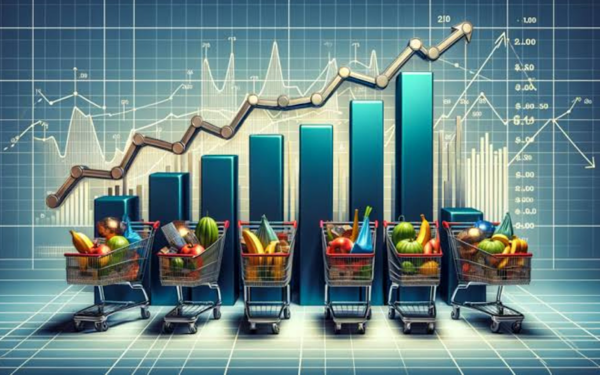Turkey’s food inflation spikes despite global decline

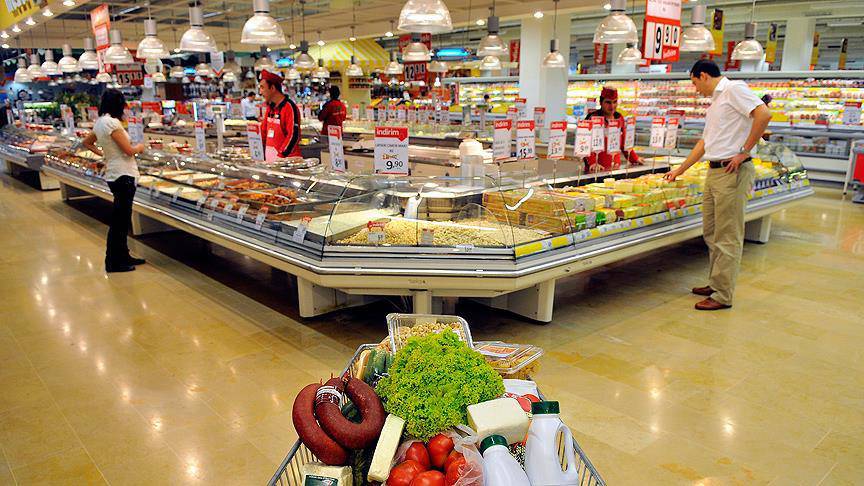
Turkey’s food inflation nearly doubled in a month in February, exceeding 8.40%, according to official statistics. The annual food inflation was over 71%.
Notably, last month’s inflation rates announced by Turkstat was even higher than alternative measurements. The Inflation Research Group (ENAG), established by a group of academics due to the perceived unreliability of Turkstat’s data, measured food inflation at 5.84% last month. According to the Economic Policy Research Foundation of Turkey (TEPAV), food inflation was 7.02%, and according to İstanbul Chamber of Commerce (İTO), covering this city, food prices increased by 4.98%.
Türk-İş, the largest union confederation in the country, calculated that the monthly food expense for a four-person family living in the capital Ankara rose by 8.03% in a month to 16,257 liras, nearly equivalent to the minimum wage.
The government’s shift towards more orthodox policies after the May 2023 elections is believed to contribute to making Turkstat figures more ‘realistic.’ However, alternative measurements still show higher inflation rates than official figures in six-month cumulative inflation rates, with Turkstat reporting 30.78%, TEPAV 38.51%, and ENAG 54.29%.
While food prices increase sharply in Turkey, data from the UN Food and Agriculture Organization (FAO) indicates a significant decline worldwide. The FAO Food Price Index decreased by 0.7% to 117.3 points in February compared to the previous month. The food price index has fallen for seven consecutive months and decreased by 10.5% annually.
According to the World Bank’s food security update released on Feb 29, Turkey ranks fourth globally in terms of food inflation and first among OECD countries.
Why are the prices increasing in Turkey?
Structural issues such as planning deficiencies in agriculture and animal husbandry, large gaps between producer and retail prices, and animal import policies are commonly cited as a reason in the increase in food prices.
According to Turkstat figures, the annual increase in the agricultural input price index was 41.43% in December 2023. Feed prices increased by 27.21% in a year, and the prices of agricultural chemicals increased by 24.75%. The rise in fuel prices is also a significant factor in food price increases. According to the Turkey Agricultural Chambers Union, 75% of the government’s support to farmers was spent compensating for the increase in diesel prices last year.
Another reason for price increases is the arrival of Ramadan, the holy month for Muslims, when prices traditionally go up. The Ministry of Trade intensified price controls in grocery stores before Ramadan, but the effectiveness of these controls is questionable. The chair of the Agricultural Chambers Union, Şemsi Bayraktar, notes significant price increases compared to last year’s Ramadan. Consumer organizations also warn consumers to be vigilant and exercise ‘the right not to buy.’ Grocery chains have posted massive profits over the past couple of years.
As a result, a healthy diet recommended by the health minister Fahrettin Koca during Ramadan seems unaffordable for most, costing 30,000 liras for a family of four, nearly equivalent to two minimum wages.
Meat prices and speculation
Meat prices are one of the categories where food prices have increased the most. İstanbul Chamber of Industry Chair Şekip Avdagiç describes the more than 100% increase in meat prices in an environment where feed prices have increased by 27% as ‘irrational’ and urges the authorities for a thorough investigation of the matter.
Turkey Butchers Federation President Osman Yardımcı says that butchers are also uncomfortable with the increase because their sales have halved. According to Turkstat, approximately 40% of the population cannot afford to eat red meat, chicken, or fish every other day. According to Yardımcı, larger companies are responsible for the increase. “We had not increased the price of red meat in previous Ramadans, but due to the opportunistic price increases this year, there has been a very abnormal rise.”
Minister of Agriculture İbrahim Yumaklı similarly blamed ‘Ramadan opportunists’ for the increase in meat prices.
Measures taken in this regard seem to be insufficient. Those large companies allegedly organize in Whatsapp groups to determine prices. The penalties imposed on them are not deterrent, and often result in further price increases to cover the cost of the penalties.
The Milk and Meat Board had agreed with some grocery chains to fix the price of red meat, which costs more than 400 liras per kilogram, at 315 liras throughout Ramadan. However, this agreement does not cover the country’s largest chain markets, and some markets that made the agreement are reportedly aren’t implementing it.
The board also sells meat for more affordable prices in its own shops, which see people queing up for hours.
In a peculiar incident, the finance police visited a Kahramanmaraş cattle handling facility with only a few dozen animals on suspicion of ‘speculation’ because its owner frequently commented about meat prices on social media. Yakup Konan expressed his astonishment, saying, “How can I manipulate the market with 40-50 animals?”
Turkey has been regularly importing meat since 2010 to control the increase in meat prices. However, veteran agricultural journalist Ali Ekber Yıldırım noted that during this period, the price per kilogram of carcass meat has increased from 10 liras to 276 liras. “Import prices did not lower, but increased. If the money spent on imports were given to production and producers, and animal breeding was carried out, Turkey would be an exporter today, not an importer.”
Explained: The broader context behind Turkey’s crackdown on İstanbul mayor
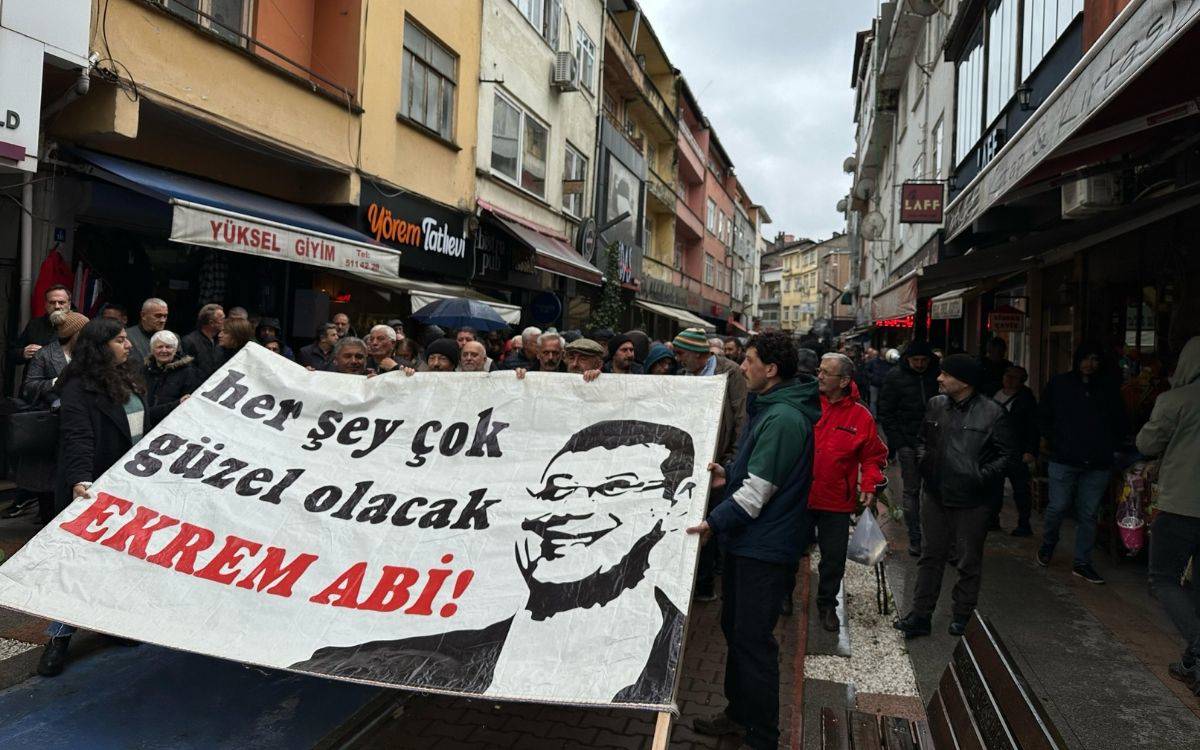
Turkey's independent media protest Google over ‘algorithmic censorship'

Despite health issues, Bahçeli seems at steering wheel of Turkey’s new Kurdish initiative

Turkey’s crackdown on Kurdish political movement expands to ‘terrorist weddings’

Violent protests target refugee community in Turkey’s Kayseri after alleged sexual assault on minor







